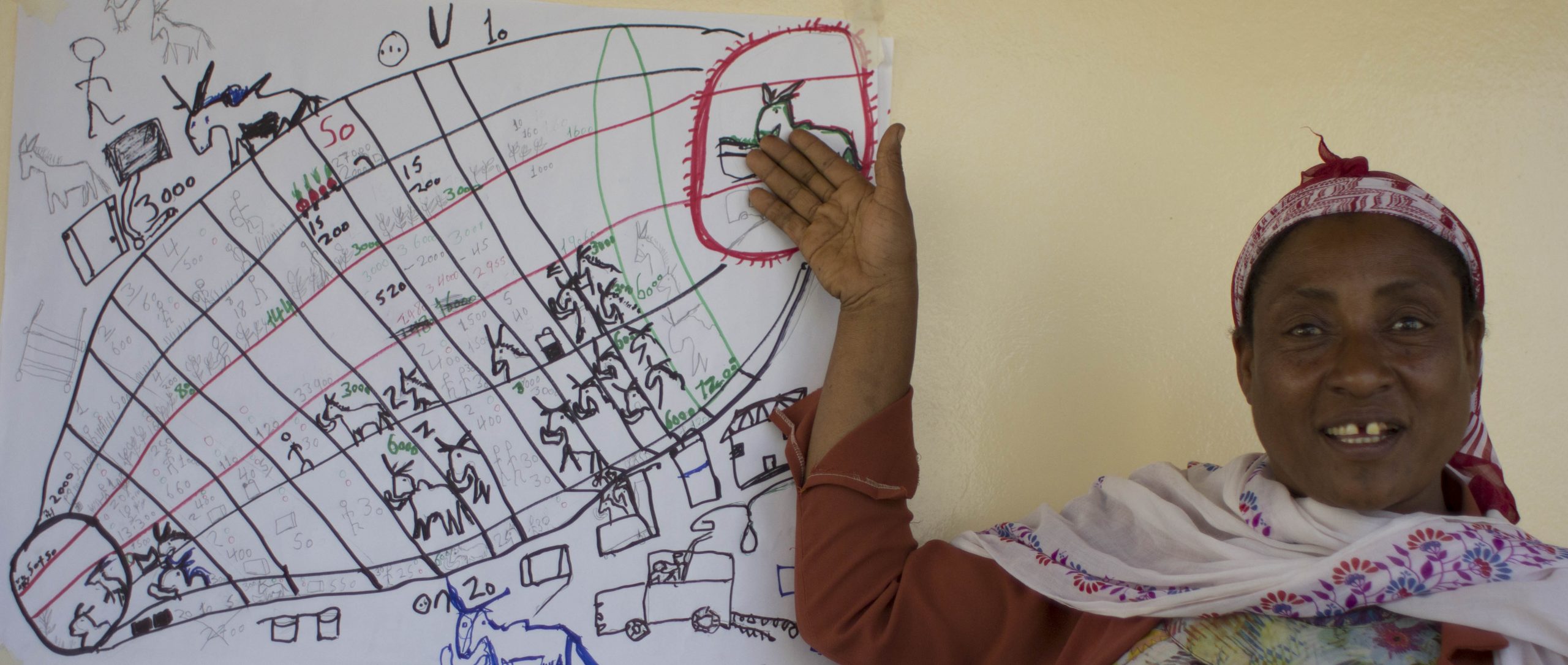PALS is the original, generic methodology for life and livelihood visioning, contextual analysis and action planning by individuals and organisations.
Individuals and organisations at different levels to develop their own visions and plans,
They then track, analyse and share experience over time to assess how far they are progressing towards those visions, and how they can improve their own success.
Through sharing experiences and collective aggregation and analysis of information they further improve their own success, develop collective actions and increase their voice in policy advocacy.
Gender Justice and women’s empowerment are fundamental non-negotiable in all these methodologies through ensuring gender dimensions to all the tools and the use of gender inclusive and empowering facilitation techniques. More advanced gender-focused Gender Action Learning processes then reinforce the opening of gender discussion spaces created by PALS.






PALS Evolution
Participatory Action Learning System (PALS) started to develop in 1999 – 2002 as:
- a set of pictorial empowerment tools for life visioning, planning, analysis and networking that members of savings and credit groups use as a sustainable process of learning and action.
- a participatory research methodology for participatory monitoring and evaluation and impact assessment that would not only collect reliable information, but also benefit and increase the understanding of participants and development staff about how to more effectively advance towards their visions and goals.
‘Participatory Action Learning for Sustainability‘ (PALS) promoted the business and development sustainability case for these empowerment empowerment action methodologies as an integral part of ‘mainstream’ livelihood, business and value chain methodologies for:
- micro-finance organisations looking for a way of making micro-finance groups more empowering, particularly for women with organisations like PRADAN, ANANDI and CARE in India, Aga Khan Foundation Pakistan, PASED Sudan and partners of Trickle-Up US in India (Jamghoria Sevabrata) and Uganda (Bukonzo Joint and GreenHome).
- participatory enterprise development impact assessment for the DFID-funded EDIAIS project on enterprise development impact assessment (1999-2001) and USAID AMAP project on micro-finance (2005). This was developed further in Uganda with Kabarole Research and Resource Centre Uganda, partly funded by Hivos (2002-2005).
- participatory approach to local economic development planning with SDC and World Bank in the West Africa ECOLOC process (2004).


